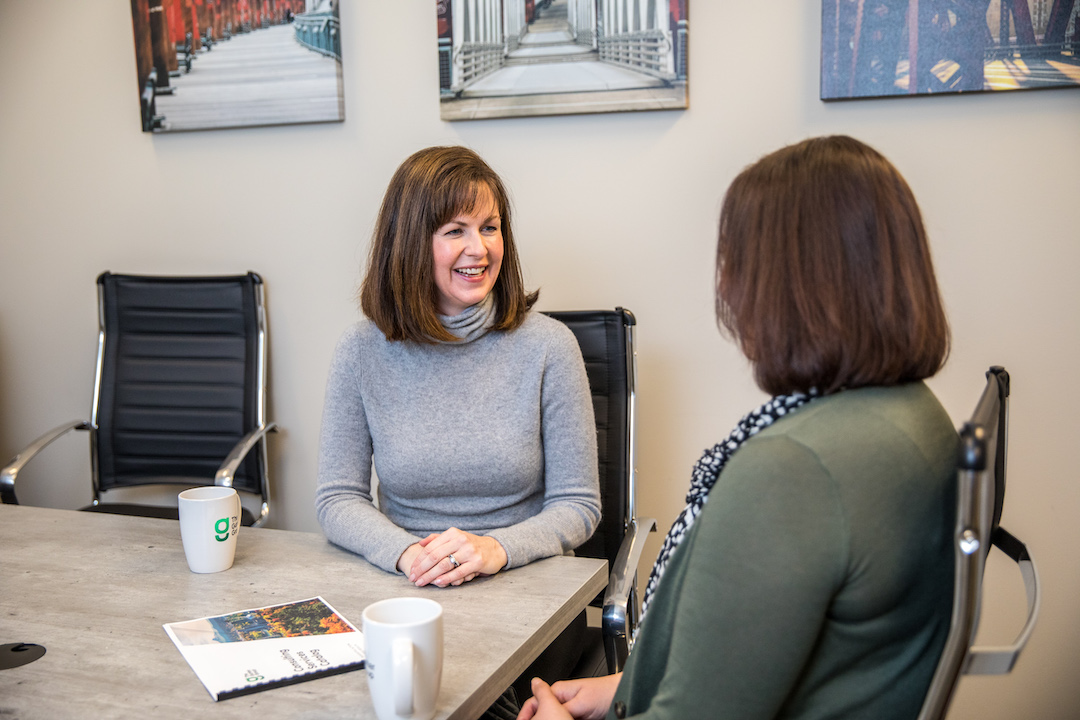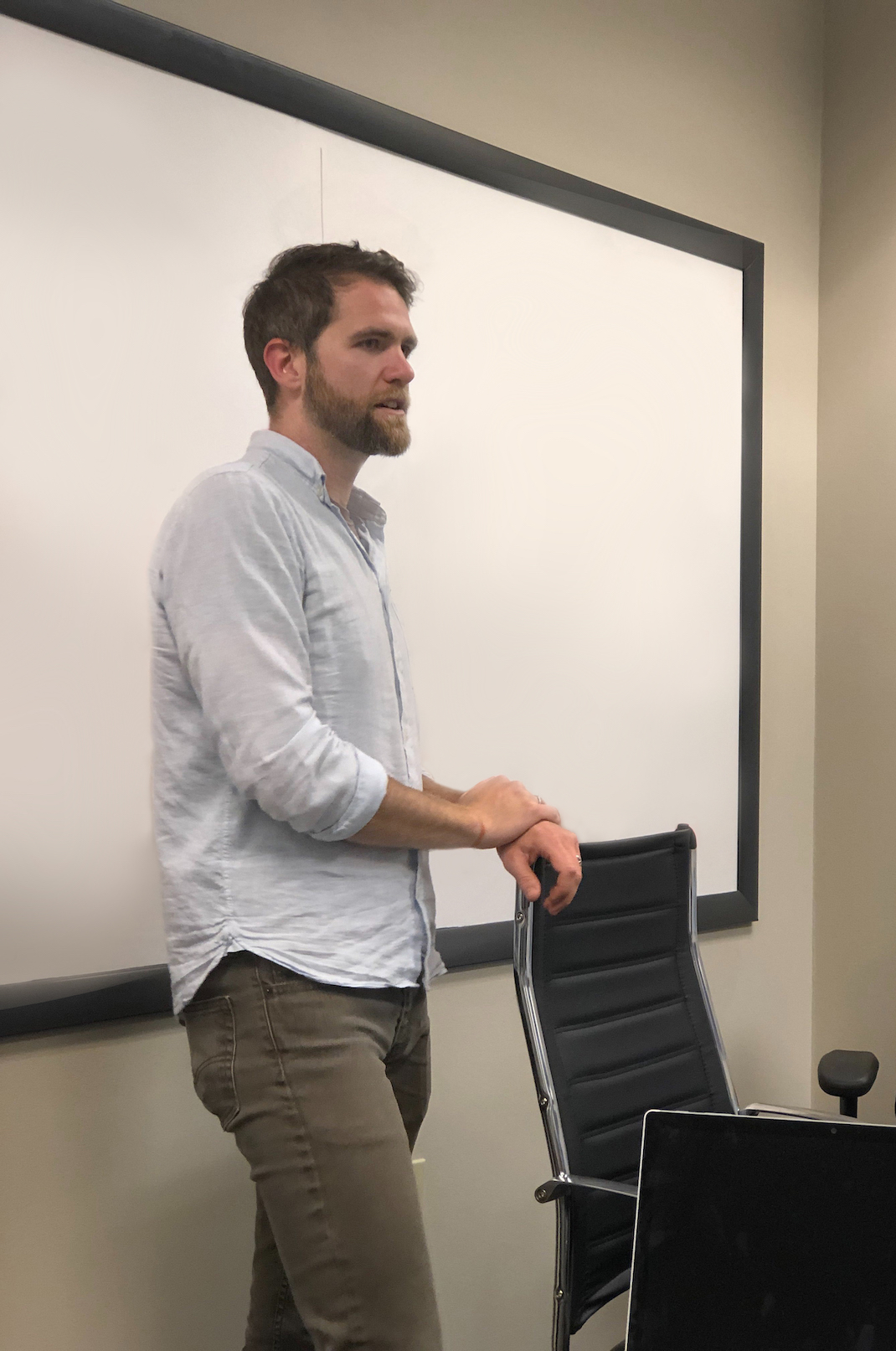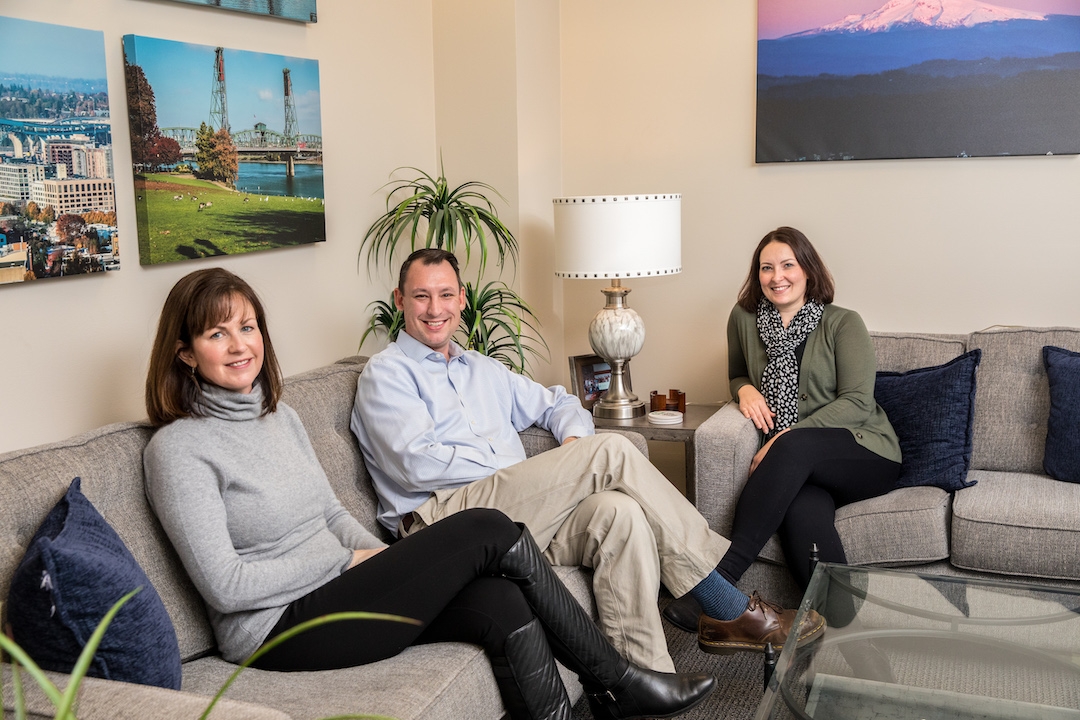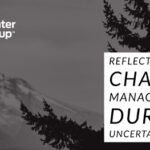Brand Story – How a different kind of consulting firm delivers results thanks to its holistic approach and non-negotiables
In today’s fast-paced, adapt-or-die landscape, companies call The Gunter Group (TGG) in search of real change. The consulting firm, a label it uses reluctantly, credits its multidisciplinary approach and non-negotiable traits for its consistent results. Far from intangible principles or marketing bullet points, these qualities shine through in every project and team member.
Clients who reach out might initially be drawn to the group’s roots in the Pacific Northwest or their ability to deliver results. Ultimately though – whether in health care, retail, education, insurance, manufacturing, the public sector or law – they need help solving a problem or measurably improving performance…fast. As TGG’s team analyzes a situation with fresh eyes and a different and diverse perspective, the client’s initial perception of the issue can morph into a more complete picture.
“They might see a symptom. Then when we come in to do triage, we solve a different problem,” explains Ashleigh Gunter, Partner, The Gunter Group. “Tech presenting symptoms could have a business strategy problem. So, if we just executed against a statement of work that said, ‘Do that technology thing,’ we wouldn’t really solve the real issue.”
Rather than arriving on the scene with a set agenda or rigid statement of work, TGG brings an open mind that examines change from four distinct angles, each solidified with its own service line: strategy, people, execution and technology.

As part of its Strategy service line, TGG gives organizations a pragmatic path forward that incorporates high-level objectives, actionable steps and continuous metrics. Organization design, change management, leadership coaching, employee engagement and recruiting strategy design and implementation comprise their People service line.
But projects frequently involve more than one service line. When working to address a client’s 50% annual turnover rate, for example, the team worked with Gallup to identify the key traits of target recruits, developed an employment brand to articulate the employee experience, implemented an applicant tracking system and onboarding tool, and then manned the support lines while managers mastered the new procedures.
These technology components are led by individuals who understand technology, business, organizational culture and the interplay between the three. Depending, as always, on the organization’s unique needs, this could mean management, strategy and operations; Agile implementation; data analysis and business intelligence; or enterprise architecture and advisory services.
Recently, a client called on TGG to solve a software issue that would have required hundreds of thousands of dollars and a two-year implementation process. Instead, the team mediated between all parties involved and set up an employee training program that fulfilled the same requirements as the software but took a mere three weeks to complete at a fraction of the cost.
“For us, it’s not ‘will you sign this check?’ It’s what value are you getting?” adds Matt Jamison, Principal Consultant, Tech Services leader, The Gunter Group. “We want it to make sense. We’re not trying to be transactional. It’s about serving the client first.”
 Matt Jamison, Principal Consultant
Matt Jamison, Principal Consultant
Clearly clients benefit from consultants with diverse industry backgrounds and a multidisciplinary outlook. More notably though, TGG’s non-negotiables paved the way for Jamison to explore an alternative solution even though it would significantly shrink the project. The company has six defining leadership traits and characteristics called non-negotiables: collaboration, emotional intelligence, intellectual curiosity, thrives in ambiguity, integrity and grounded confidence.
“I left consulting to do training and teaching,” shares Stephen Bacon, Senior Consultant, The Gunter Group. “I realized I valued the opportunity to make employees better, not just make them look better. So when the opportunity to return to consulting came up, I knew the decision had to be values-based.”
Because TGG recruits based on those traits, clients come to expect a certain quality of moral leadership from any of the firm’s team members. Character is particularly crucial when consultants are called in to operate seamlessly within the organization as a program leader or interim executive. These services fall under its Execution business line, along with business and systems analysis; testing and quality management; and operations and process improvement.
“We don’t get calls from clients when everything is going great. We need to be able to walk in, survey the landscape, focus on what needs to get done and deliver even when things are confusing or chaotic. That’s thriving in ambiguity,” Gunter says. “Our non-negotiables are important because we’re living and working in the community, not flying in for the week.”
Perhaps these shared traits reflect why TGG was ranked as one of Oregon Business’s 100 Best Companies to Work for in Oregon in 2015-20 and Consulting Magazine’s national #4 Best Small Firms to Work in 2019.
The company’s management believes that consultants cannot thrive when simply checking the boxes: “I have never done a project where I simply executed against the statement of work. We are constantly asking, ‘Why are you doing this change?’” adds Trisha Bennett, Principal Consultant, Execution practice leader, The Gunter Group.
Through helping clients be the best they can be, thereby maximizing an organization’s potential, it also facilitates exciting work opportunities for the TGG team. The final part of the firm’s role revolves around investing back into the community, often by contributing to client causes, which earned it the PBJ Most Generous Corporate Philanthropists accolade.
After all, for TGG and its clients, Oregon is home. So while its long list of client success stories speak to the quality of its approach and non-negotiables, perhaps more telling are the many clients that have become lifelong friends, holiday dinner guests and friendly faces in the neighborhood.
Brand stories are paid content articles that allow Oregon Business advertisers to share news about their organizations and engage with readers on business and public policy issues. The stories are produced in house by the Oregon Business marketing department. For more information, contact associate publisher Courtney Kutzman.





